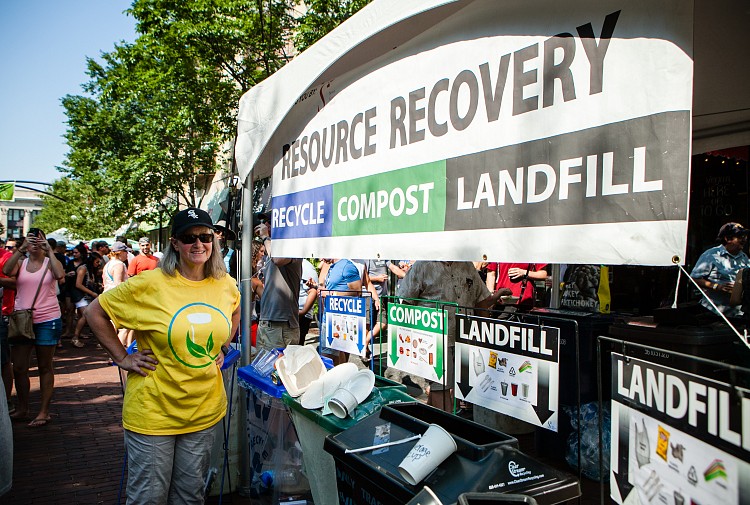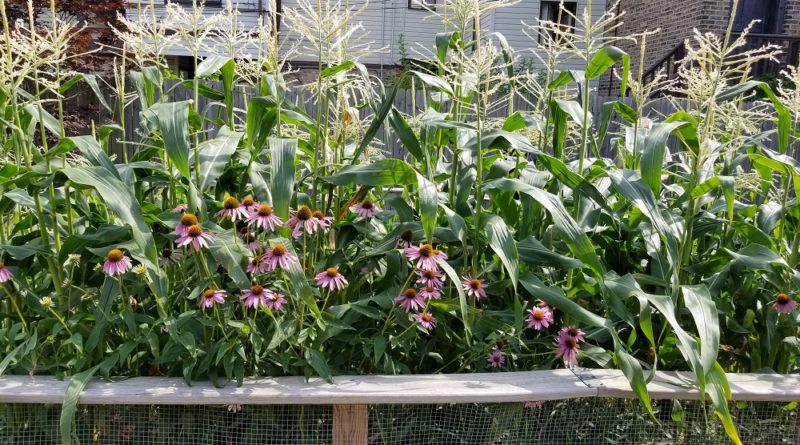Summer Vegetables Report 2019
Podcast: Play in new window | Download (Duration: 1:44:24 — 48.3MB)
Subscribe: Apple Podcasts | Spotify | Android | iHeartRadio | Podchaser | Email | TuneIn | RSS | More
(August 11, 2019) How did it get to be August? Seriously. I guess I’m asking that question because this is tomato harvest time. Last year was a bumper crop. This year? Don’t ask. And it doesn’t help that just this week we tossed seven gorgeous tomatoes that were partially eaten by critters. In a good tomato year, that wouldn’t be a problem. This year, it hurts. So we need a summer vegetables report.
Who better to talk summer vegetables than some of the folks who joined us at the beginning of the year. We start with The Wisconsin Vegetable Gardener, Holly and Joey Baird. They were last with us in February of this year. They actually drove down from Milwaukee to be with us on the show then, and the subject was “trying something new.” I’m eager to ask they them what they tried. We may also discuss mid to late summer diseases like powdery mildew, something they discussed on a recent show.
They have a Milwaukee radio show, which recently has spread to several other markets around the country. They have a ton of “how to” videos on their website, and they’ll grow veggies anywhere.
They grow in the ground, raised beds, straw bales, containers and indoor herbs and even a dwarf lime tree they have year round in their kitchen!
Their goal through their videos and social media pages is to show the average person how easy it is to grow food, store food, and reuse everyday items. Their motto is “grow with us”.
Joey and Holly enjoy speaking at garden expo’s throughout the midwest. Holly is also an award winning home canner with a handful of ribbons from the Wisconsin State Fair including a Best of Show award for her home canning talents.
Our other expert is Dan Gibbs, also known as The Backyard Farmer. When he visited us back in March of this year, I wrote about how he didn’t start out as a farmer.
In 2014, he gave up his Wisconsin business but started another one in Illinois, called The Backyard Farmer. Its mission is “to make local food gardening accessible and easy for families through education, inspiration and ongoing support. ” He accomplishes that by helping his clients through all phases of growing–planning, design and installation.
He also works with the Austin Green Team, where he is president and garden leader. That organization converts derelict properties into gardens. And he is a garden educator for an organization called Big Green. Their goal is to create a replicable, scalable school garden solution.
The truth is, I’m not growing a lot of summer vegetables this year. And I don’t consider myself an expert. Which is why Dan Gibbs and Holly and Joey Baird join Peggy and me this morning.
Are “zero waste” events possible?
The Oak Park Micro Brew Review is the largest, zero-waste, craft beer fest in the Midwest. Okay, stop right there. What do they mean when they say “zero-waste”? According to Seven Generations Ahead, which runs the event, more than 80% of the waste is diverted from landfills. Of course, on another part of that same page, the figure is 100%. So, I guess I know what my first question is this morning.
 Here’s another question. How many breweries will be represented? The answer is lots. The General Admission ticket price for the 2019 Oak Park Micro Brew Review is $50, in advance. There will be a limited number of tickets available at the gate on the day for $55. General Admission includes up to 40 samples in a 6oz tasting glass and an informative program book to guide you toward the brewers on site.
Here’s another question. How many breweries will be represented? The answer is lots. The General Admission ticket price for the 2019 Oak Park Micro Brew Review is $50, in advance. There will be a limited number of tickets available at the gate on the day for $55. General Admission includes up to 40 samples in a 6oz tasting glass and an informative program book to guide you toward the brewers on site.
And there will be food and music and something called the Iron Brewer Competition, and more. The event is on Marion Street, Oak Park next Saturday, August 17. Gates open at 2:00 p.m. (beer pours at 3:00pm) and the event ends at 7:00 p.m. You can get tickets here.
But that’s just the fundraiser for Seven Generations Ahead. They do a lot of other things to promote sustainability. Here are a few.
- The Illinois Farm to School Network (IFSN) – IFSN is comprised of teachers, early care providers, food service staff, farmers, students, and others who are working to change food purchasing and education practices in their communities.
- Zero Waste – That means Zero Waste Schools as well as Food Waste Reduction and Composting.
- Solar Energy – SGA is working with various communities to promote solar projects and installations.
To highlight these activities, I welcome an old friend back to the show. Alan Shannon is a Public Affairs Director for the Midwest Office of the Food and Nutrition Service (FNS) of the USDA. I met him through a program called GoodGreens. It’s a Midwest network of nearly 1400 businesses, farms, organizations and individuals focused on creating and supporting local food systems. Let’s put it this way: Alan Shannon knows about food and nutrition programs. He is also on the board of Seven Generations Ahead.
Jen Nelson is Senior Program Manager for Seven Generations Ahead. She works with businesses and communities on sustainability planning. And on state, county and municipal levels, she helps to connect partners on food scrap composting, soil, food and water issues.
They join us this morning to preview the Oak Park Micro Brew Review and to talk about the work of Seven Generations Ahead.
Bonus DiMaio this morning!
After being away for three of the last four weeks, we’re pleased to say that meteorologist Rick DiMaio is back. In honor of his return, we will have bonus DiMaio time this morning. Here are several articles that he sent and that we might discuss. If not, read them anyway.
- All Eyes on the Aug. 12 USDA Reports – USDA will release its monthly Crop Production and World Agricultural Supply and Demand Estimates (WASDE)…and there might be some fireworks.
- What Worries Iceland? A World Without Ice. It Is Preparing –
“The glacier is melting so much that the land is rising from the sea,” said Mr. Ingólfsson, the chief executive of Skinney-Thinganes, one of Iceland’s biggest fishing companies. “It’s harder to get our biggest trawlers in and out of the harbor. And if something goes wrong with the weather, the port is closed off completely.” - Farmers Don’t Need to Read the Science. We Are Living It –
We try to take great care of our soil’s health and we keep learning how to do it better. A living soil with lots of organic matter absorbs and holds more water and nutrients, retains more topsoil and grows healthier plants that survive increasing pressures from pests and diseases.
And here’s one from me.
- This Land Is the Only Land There Is –
But unlike other sources of pollution—such as the burning of fossil fuels, which must be quickly reduced globally—land can’t just be shut down. It must be made into a tool in the climate fight. The report’s more than 100 authors, hailing from 51 countries, say that this will require immediate action from farmers, bankers, conservationists, and policy makers worldwide. And to really succeed, it will require hundreds of millions of affluent people in the Northern Hemisphere to change their diet, eating many more plants and much less meat—and especially much less red meat—than they do now.
There will be a quiz at the end of the hour. Start reading.


Great show Mike and Peggy! Thanks.
Mac,
You are a peach.
Mike